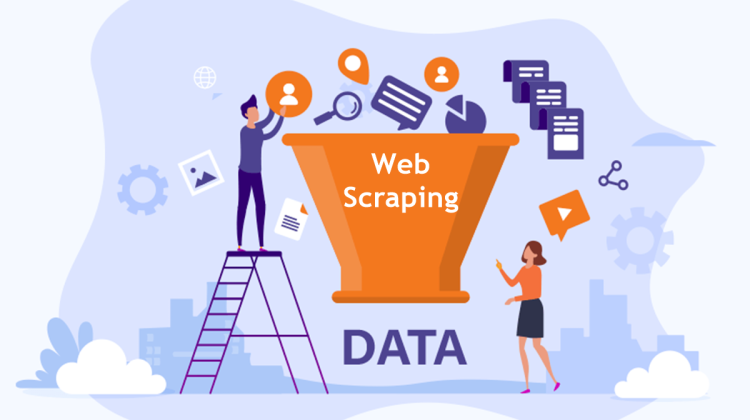
In a data-driven world, information is akin to gold. Every day, a wealth of data is generated and shared on the internet. But how can you efficiently tap into this vast ocean of information? The answer lies in web scraping, a technique that allows you to extract, analyze, and utilize data from websites. In this article, we will embark on a journey through the realm of web scraping using the versatile programming language, Python. We’ll explore its mechanics, tools, potential applications, and some ethical considerations.
A Python LinkedIn scraper is a tool or script developed using the Python programming language to extract data from LinkedIn profiles and pages. This type of web scraping involves retrieving information such as job titles, company names, education details, skills, and connections from LinkedIn profiles. Selenium and Beautiful Soup are common libraries used for web scraping in Python.
Unraveling the Art of Web Scraping
Web scraping involves automating the process of fetching and extracting data from websites. Imagine a virtual robot navigating through web pages, collecting the desired information along the way. Python, with its simplicity and robust libraries, is your best companion in this endeavor.
The Dynamic Duo: Python and Web Scraping Libraries
Two main libraries, BeautifulSoup, and Requests, are the cornerstones of web scraping in Python:
- BeautifulSoup: This library is a parsing toolkit that enables you to navigate and manipulate HTML and XML documents. It acts as a guide for your virtual robot, helping it understand the webpage’s structure and locate the data you need.
- Requests: To interact with websites, your Python script needs to send HTTP requests. The Requests library lets you send these requests and handle the responses, ensuring seamless communication between your code and the web server.
Unlocking Opportunities with Web Scraping
- Business Insights: For market research, web scraping enables you to track competitor prices, analyze customer reviews, and gather valuable insights to inform business strategies.
- Content Aggregation: Creating content-heavy websites or platforms? Scraping news articles, blog posts, or other relevant content can help maintain an up-to-date and engaging platform.
- Real-Time Data: Stock prices, weather forecasts, and cryptocurrency rates are just a few examples of real-time data that can be scraped and utilized for analysis.
- Academic Research: Researchers can collect data for social studies, sentiment analysis, or any domain that requires large-scale data collection.
- Personal Projects: From building custom datasets to experimenting with data analysis techniques, web scraping opens doors for personal projects limited only by your imagination.
Ethics in Web Scraping
Responsible web scraping demands ethical considerations:
- Terms of Use: Always review a website’s terms of use before scraping. Some sites might prohibit scraping or have specific rules you need to follow.
- Respect Robots.txt: Respect the website’s “robots.txt” file, which provides guidelines on what parts of the site can be scraped. This file is like a virtual “do not disturb” sign for your scraping robot.
- Rate Limiting: Sending too many requests too quickly can overload a server. Implement delays between requests to avoid causing disruptions.
Best Practices for a Smooth Scraping Experience
- Inspect the Page: Before writing any code, examine the webpage’s source code to understand its structure and identify the data you want to extract.
- Be Consistent: Web pages often change their structure. Regularly review and adjust your scraping code to accommodate any modifications.
- Error Handling: Implement robust error handling to manage unexpected issues gracefully, such as connection failures or missing elements on the page.
- Data Cleaning: Extracted data may need cleaning and formatting. Python’s data manipulation libraries, such as Pandas, can be invaluable in preparing data for analysis.
Conclusion
Web scraping with Python is a powerful way to transform the digital landscape into actionable insights. By embracing libraries like BeautifulSoup and Requests, you can navigate the complexities of web pages, extract relevant information, and put it to good use. Whether for business, research, or personal curiosity, web scraping equips you with the tools to harness the data goldmines scattered across the internet. Remember, with great power comes great responsibility, so tread ethically, be mindful of the websites you scrape, and let the world of data enrichment unfold before you.

Leave a Reply